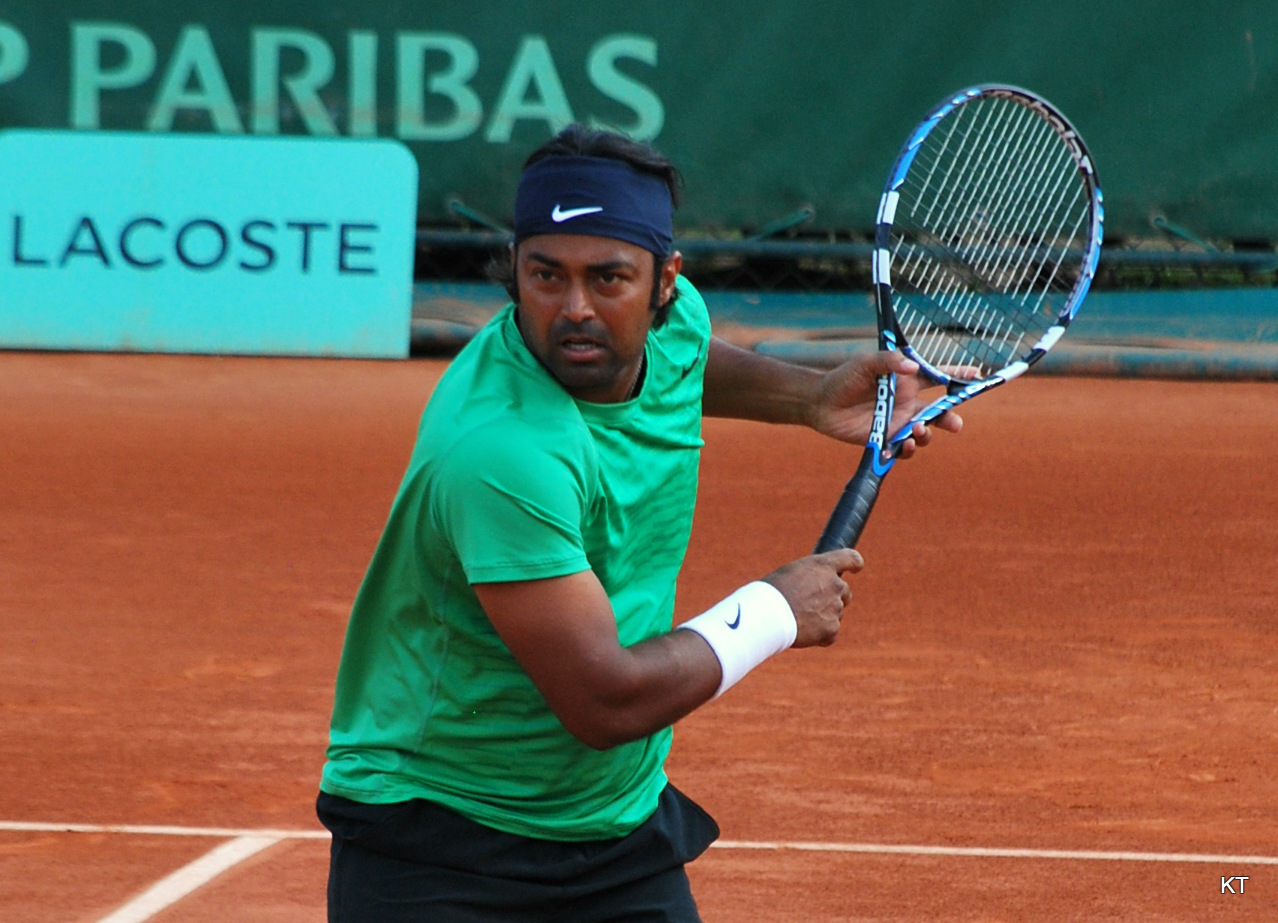In 1990, Naresh Kumar, the then non-playing captain, was instrumental in including a 16-year-old from Calcutta in the India Davis Cup team and Leander Paes caught the imagination of tennis aficionados almost immediately.
On Thursday, a day after Paes made a Christmas Day announcement of 2020 being his last year as a professional tennis player, Kumar recalled that moment and said Paes was a “rather special person” and a “highly gifted player”.
“It may not be usual for a player to announce a farewell tour. Thing is, your cannot rate Paes like an ordinary, normal person. He is very special, very gifted. Ordinary people don’t have his resilience and reservoir of resolve,” Kumar told The Telegraph.
“Leander had reached Chandigarh by train to join the Davis Cup squad (against Japan) as the fourth player,” Kumar said, recalling Paes’s debut match in 1990. “He had a bit of a swag even then. He was fearless when he played. He jumped straightway into the fray.”
Paes had teamed up with Zeeshan Ali to win the doubles in a marathon match that sealed the tie for India.
“Paes is a natural athlete. But that is not enough. His attitude and fearlessness are inherent. I always knew that at crucial moments this fellow would do something special.”
Kumar was Paes’s captain in a number of Davis Cup matches, and he said: “What I soon realised was that he did not play by any set norms. He made his own. His unpredictability was his strength. I let him do his thing and never did I have any trouble with him in the team. He had great attitude, which was good for the team also.”
Kumar’s best Paes moment was the victory against Henry Leconte in 1993 in France. “The French courts were very slow. I told him ‘you can only win if you hit with all your might. Normal chip-and-volley game will not work’. He kept the ball deep and the higher-ranked Leconte had no answer. It was an amazing match. It destroyed Leconte,” he said.
Kumar said that he had to learn how to handle Paes. “Normally, I had to stoke up others. But with Leander, I needed to pump him down. He was very different. I learnt how to handle him.
“Ramesh (Krishnan) was almost expressionless. But Paes was just the opposite. I needed to tell him to relax between points.”
He added that it was mutual trust that helped him get the best out of Paes. “We trusted each other, have a great rapport.”
Another tennis icon who had seen Paes develop closely, Jaidip Mukerjea, said that he found it a bit unusual that Paes announced a farewell year. “Yes, announcing a farewell tour year is not really usual in tennis. But having said that, Leander is Leander. I won’t be surprised if he wins some great matches. Depends on who he gets as a partner now.”
Mukerjea, who was the coach when Paes won the bronze medal at the Atlanta Olympics in 1996, said: “He has done yeoman’s service for Indian tennis. His Olympics medal, his record in the Davis Cup — that will be unmatched. But I still feel he could have hung up his boots a few years back maybe.”
Asked why he thought Paes wanted to play in 2020, Mukerjea said: “He will of course want to play in the Tokyo Olympics. But whether he can make the team remains to be seen.”
For Mukerjea, the Atlanta Olympics is his best Paes moment. “He won the bronze against all odds. He played some fantastic matches and the one he lost to Andre Agassi was very close.”
He also added that Paes’s victory against Goran Ivanisevic in Davis Cup was also memorable. “He has had a fantastic career. I wish now he would work towards helping junior tennis in our country,” he said.










